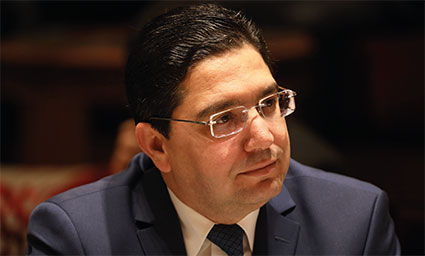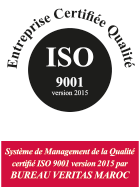
Definitive cancellation of Rabat’s trade agreements with Brussels on fisheries and agriculture in 2019. This was the verdict delivered by the Court of Justice of the European Union (CJEU) on Friday, October 04, 2024. The Brussels court justified its decision on the grounds of «the non-consent of the Saharawi people».
This supreme legal body of the EU thus confirms the Court’s ruling of September 29, 2021, and rejects the appeals lodged by the European Commission and the European Council in their entirety.
However, the Court’s decision will not take immediate effect. It specifies that the fisheries agreement, which expired in July 2023, has already ceased to have effect. With regard to the agreement on liberalization measures for agricultural products, the Court grants an additional period of 12 months before the agricultural verdict is implemented. This decision is intended to avoid «the serious negative consequences for the Union’s external action which its immediate annulment would entail», and for «reasons of legal certainty».
«Blatant political bias»
Morocco’s reaction was swift. The Ministry of Foreign Affairs issued a press release expressing Morocco’s firm position. It began by stressing that «the Kingdom does not consider itself in any way concerned by the decision of the Court of Justice of the European Union», since it «did not participate in any of the phases of this procedure».
This case, Nasser Bourita’s department points out, concerns the European Union on the one hand, and the «Polisario» supported by Algeria on the other.
In fact, it was the European Commission and Council, supported by France, Spain, Belgium, and Hungary, which lodged an appeal in 2021 to challenge the ruling of the Court of First Instance before the higher jurisdiction, the CJEU.
Another major clarification from the Ministry, which denounces «obvious legal errors» and «suspicious errors of fact» in the Court’s decision.
«This indicates at best a total ignorance of the realities of the case, if not blatant political bias», says the Ministry, adding that «in the process, the Court even took the liberty of substituting itself for the competent UN bodies and contradicting their well-established positions and approaches».
The Ministry recalled a similar case in the United Kingdom, in which the British High Court had shown greater discernment, impartiality, and legal expertise. Thus, Morocco demands that «the Council, the European Commission, and the EU Member States take the necessary measures to meet their international commitments, preserve the achievements of the partnership, and provide the Kingdom with the legal certainty to which it is legitimately entitled, as a partner of the EU on several strategic issues».
In addition, the Ministry of Foreign Affairs reiterated « Morocco’s constant position not to subscribe to any agreement or legal instrument that does not respect its territorial integrity and national unity».
Tomatoes and melons from the South: labelling required
The European Court of Justice has also ruled on the labeling of melons and tomatoes from the Kingdom’s southern provinces. In a second ruling, published last Friday , October 04, , the Brussels court stressed that the label must indicate «the Sahara alone as the origin of these products, to the exclusion of any reference to Morocco». As a reminder, it was the Confédération Paysanne, a French farmers’ union, which asked the French authorities to ban imports of melons and tomatoes originating in the Sahara. The union referred the matter to the French Council of State. The latter requested the opinion of the Court of Justice. The Grand Chamber of the Court ruled that «Member States may not unilaterally adopt measures prohibiting the importation of certain agricultural products which systematically fail to comply with Union legislation on the indication of the country of origin or territory of origin». In this respect, the Court made it clear that only the Union can legislate and adopt binding acts in the field of common commercial policy. If necessary, it would therefore be up to the European Commission to intervene within the framework set by the cooperation mechanisms provided for in the EU-Morocco Association Agreement.
Khadija Skalli



























